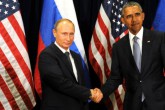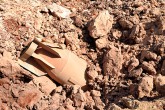If one were to ask what the most complicated problem Turkey is facing today, a great many of those who know the area would say it is the Kurdish problem. However, interestingly enough, an important part of those think this also opt to analyze this chronic problem from the data that daily politics puts in front of us. Yet, the Kurdish problem is not just important for today’s politics; it is a central element of the formation of the Turkish type of modernism. In this way, just as we can see the Kurdish problem’s tracks on daily politics, it is also possible to detect its presence in every important phase of the Republic of Turkey’s history. In this sense, the Kurdish problem is one of the formative elements of Turkish politics. The way Turkey’s political actors have approached this problem has affected political discourse, administrational struggles and strategic alliances formed with various actors.
With the transition to multi-party politics in the 1950s, the preferences of voters have determined the trajectory of politics and thus the composition of administrations. Despite the fact that up until the 2000s, there was a military intervention in politics nearly every decade, over the long term, elections have formed the main dynamic of politics.
Although the greater part of researchers working on the Kurdish problem attempt to look for the marks that the Kurdish problem has left on Turkey’s politics from the presence of the PKK, these marks can be detected from the 1950s on.
Unfortunately, the use of Turkish nationalism as a repressive and exclusivist mechanism since the establishment of the Republic has made it impossible to handle the Kurdish problem in its own context. The main reason for this is the denial of Kurdish presence and identity. Official Kemalist ideology puts forward that society is formed from a single race and that within the borders of the Republic of Turkey there is no race but Turks. This brought with it the long-term exposure of the Kurdish population to separatist politics.
The PKK, formed as a Marxist-Leninist organization in 1978, began an armed struggle against the Turkish government within the political opportunity space created by these separatist politics. The PKK’s formative rhetoric from that time on has been the struggle against the politics of denial and rejection of and separatism toward Kurds. As a matter of fact, PKK leader Abdullah Öcalan created the formula: “When the denial ends, the rebellion will end,” for this situation and repeated it often.
The PKK’s actions intensified in the 1990s, and Turkish politics entered a highly vague stage. In a period when the Cold War had just ended, a new order in the Middle East order in the process of formation, the U.S. had begun a war against Iraq and Turkey indexed itself to the struggle against the PKK and withdrew into itself.
The official attitude on the Kurdish issue began to change earnestly from the middle of the 2000s. It is possible to see the political markings of this change. For the first time, a party – the Justice and Development Party (AK Party) – in the center of politics approached the Kurdish problem within its own dynamics and engaged in efforts to respond to the demands that crystallized throughout the 1990s.
It is possible to see the content of the Kurdish issue in the 1990s from fieldwork focusing on this area. In truth, we can say that the focus of fieldwork has changed from then to now, and this change of focus clearly demonstrates the extent to which the state’s attitude toward the Kurdish issue has changed pragmatically.
The most interesting point of research done on the Kurdish issue in the 1990s is that it is not referred to as the “Kurdish issue,” but rather as the “Eastern problem” first and then later as the “Southeastern problem.” The fundamental questions of research on the Kurdish problem in the 1990s were: Should Kurdish identity be recognized, should the separatist laws in the Constitution be removed, should the Kurdish language prohibition be r
In this article
- Domestic Policy
- Opinion
- 1950
- 1978
- 1990
- 2000
- Cold War
- Elections
- Global Actors | Local Actors
- Iraq
- Kemalism
- Kurdish Community
- Kurdish Population
- Kurdish Question
- Kurdistan Workers' Party Terrorist Organization (PKK)
- Middle East
- PKK - YPG - SDF - PYD - YPJ - SDG - HBDH - HPG - KCK - PJAK - TAK - YBŞ
- Terror
- Türkiye
- Türkiye's Justice and Development Party | AK Party (AK Parti)
- United States (US)



